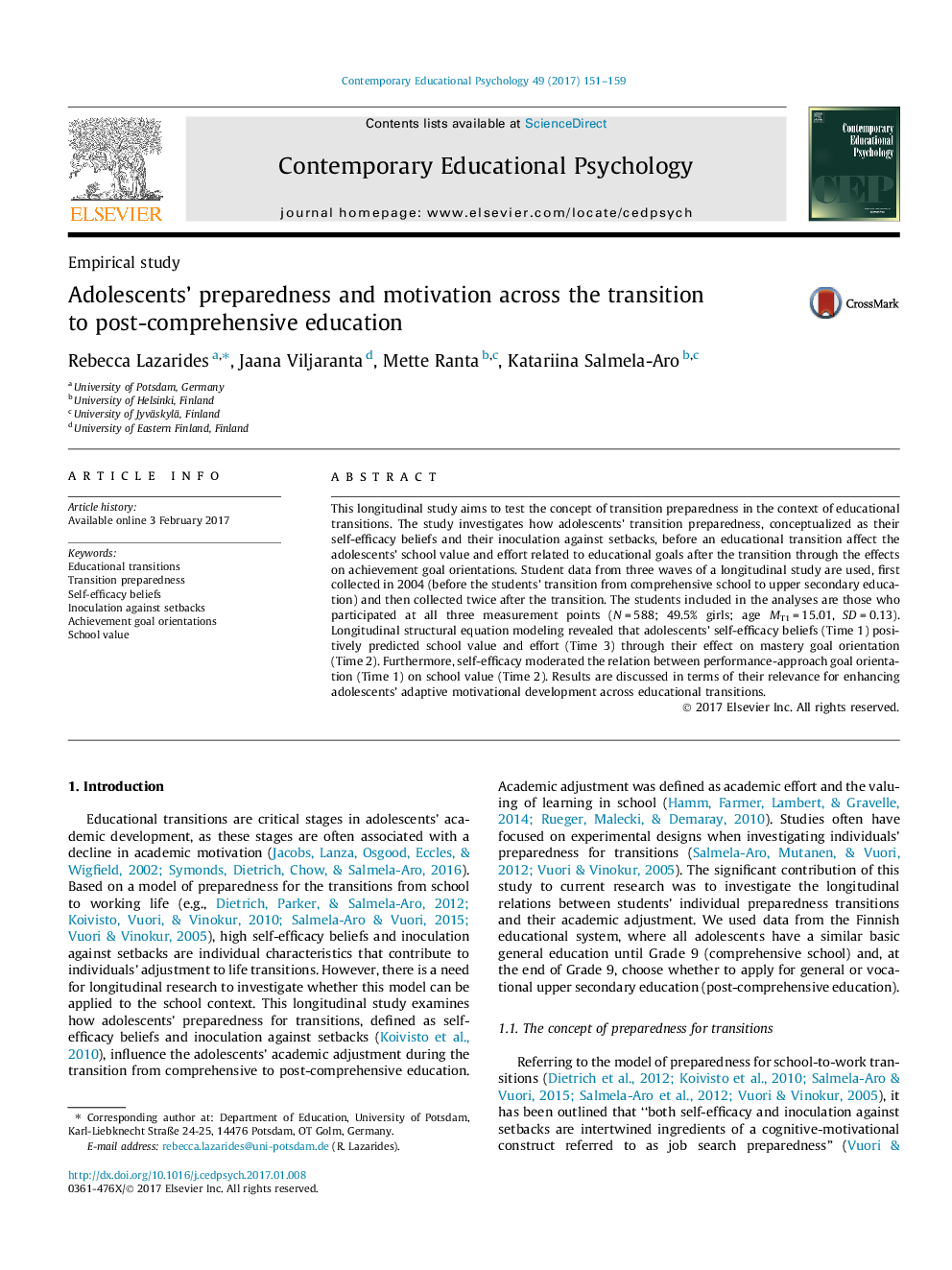| Article ID | Journal | Published Year | Pages | File Type |
|---|---|---|---|---|
| 4937898 | Contemporary Educational Psychology | 2017 | 9 Pages |
Abstract
This longitudinal study aims to test the concept of transition preparedness in the context of educational transitions. The study investigates how adolescents' transition preparedness, conceptualized as their self-efficacy beliefs and their inoculation against setbacks, before an educational transition affect the adolescents' school value and effort related to educational goals after the transition through the effects on achievement goal orientations. Student data from three waves of a longitudinal study are used, first collected in 2004 (before the students' transition from comprehensive school to upper secondary education) and then collected twice after the transition. The students included in the analyses are those who participated at all three measurement points (NÂ =Â 588; 49.5% girls; age MT1Â =Â 15.01, SDÂ =Â 0.13). Longitudinal structural equation modeling revealed that adolescents' self-efficacy beliefs (Time 1) positively predicted school value and effort (Time 3) through their effect on mastery goal orientation (Time 2). Furthermore, self-efficacy moderated the relation between performance-approach goal orientation (Time 1) on school value (Time 2). Results are discussed in terms of their relevance for enhancing adolescents' adaptive motivational development across educational transitions.
Related Topics
Social Sciences and Humanities
Psychology
Applied Psychology
Authors
Rebecca Lazarides, Jaana Viljaranta, Mette Ranta, Katariina Salmela-Aro,
